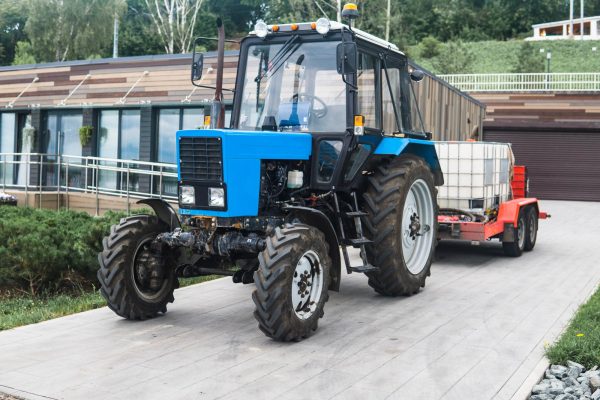Agricultural vehicles used for commercial haulage on public roads may require a digital tachograph, which records driving time, speed, and rest periods. However, there are important exemptions specific to agricultural work that farmers and contractors should understand.
Key Exemptions
According to the reviewed government guidance, tractors are exempt from tachograph requirements in two main situations:
- When the tractor is not capable of exceeding 40 km/h (around 25 mph),
- When used for agricultural or forestry activities within 100 km (62.1 miles) of their base
This means that most conventional agricultural work, such as moving between fields or transporting harvest to local storage facilities, will be exempt from tachograph requirements.
When Tachographs Are Required
Tachographs become mandatory when tractors are used for commercial haulage beyond agricultural purposes. For example, if you’re using a tractor capable of exceeding 40 km/h to transport goods for payment beyond the 100 km radius from your base, you’ll need to install and use a digital tachograph.

Domestic Rules
Even when exempt from EU tachograph requirements, agricultural vehicles typically fall under GB domestic drivers’ hours rules. These rules limit drivers to 10 hours of maximum on-road daily driving. Importantly, off-road driving for agriculture or forestry purposes doesn’t count towards this total.
Record Keeping
When operating under domestic rules, drivers must keep a record sheet of their hours, though this doesn’t require a tachograph. This is different from the more detailed recording requirements of vehicles operating under EU rules.
Professional Advice
Given the complexity of these regulations, farmers should consult with relevant authorities or professional advisors if they’re unsure whether their specific operations require a tachograph. This is particularly important when expanding operations beyond traditional agricultural work or when taking on commercial haulage contracts.
The rules aim to balance road safety with the practical needs of agricultural businesses, recognising that farming operations often involve different patterns of vehicle use compared to commercial haulage.
